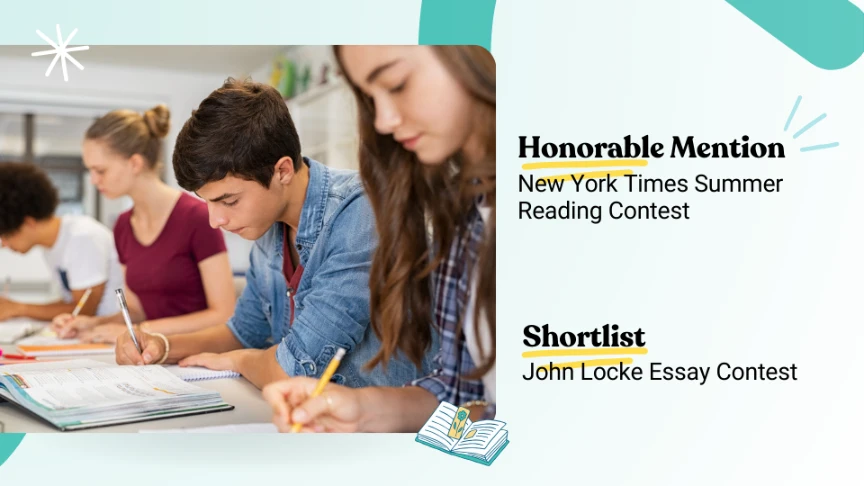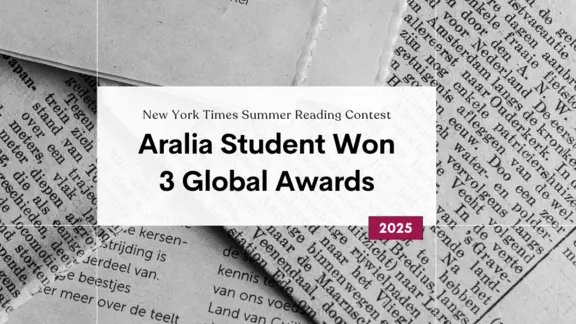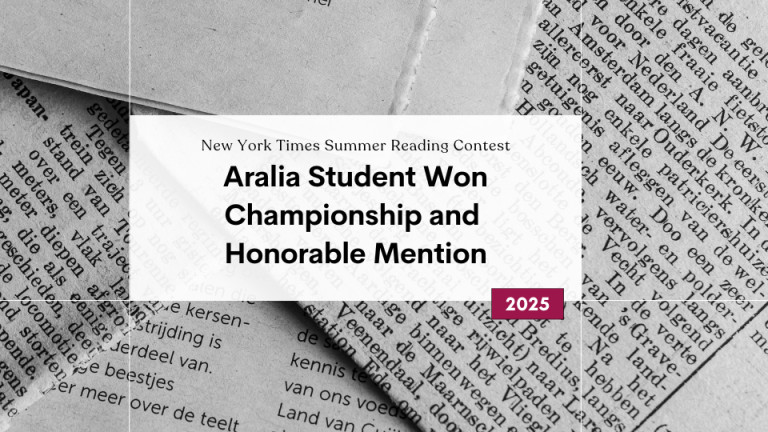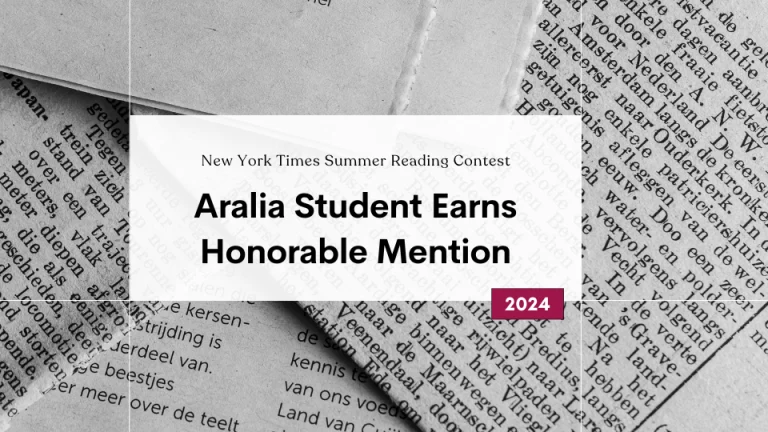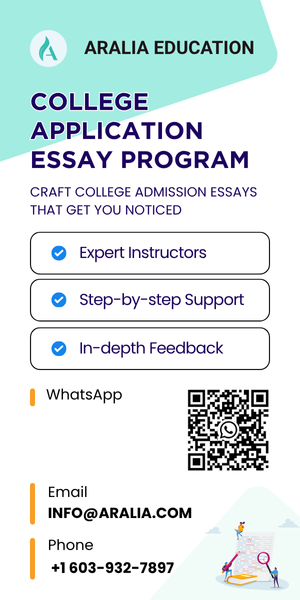Starting Early: Building Foundations in Grade 4
This journey began in 2022, when the student was just in Grade 4.
Their parents reached out to Aralia with a simple goal: prepare their child for English writing competitions in the future. But since most contests have minimum age requirements of 11 or 13, rushing into competitions wasn’t an option. Instead, our advisors suggested a slower, more thoughtful path, spending the early years building a strong foundation in reading and writing.
Year 1: Finding a Voice
To begin, the student took two courses: Intro to Writing and Intro to Reading.
At first, they were quiet and hesitant to express ideas. Over time, with encouragement from their instructors, they learned to share their thoughts more openly, to experiment with structure, and to build confidence. Progress was steady and supported by regular check-ins between parents, teachers, and advisors.
Year 2: First Steps into Competition
By the following year, the student had grown noticeably more confident, ready to dip their toes into the world of competitions. Together with their parents, we created a plan for 2024 that introduced contests gradually, focusing on experience rather than pressure.
That year, the student earned a Distinguished Honorable Mention in the Ocean Awareness Contest. It was their first taste of competing on an international stage, and an important step in learning what judges look for and how high the bar can be.
Year 3: Breakthrough Moments
2025 marked a turning point. The student was ready to take on more demanding competitions, and they rose to the challenge:
- Write the World Monthly Competitions
- John Locke Essay Competition (Shortlist)
- New York Times Summer Reading Contest (Honorable Mention)
- Ocean Awareness Contest (results pending)
Through these experiences, the student developed their own writing rhythm: learning how to brainstorm ideas, revise multiple times, and polish a piece until it truly reflected their voice. Their writing now shows maturity, structure, and individuality.
Looking Back
For the student’s family, the recognition from John Locke and The New York Times is about more than awards. It represents years of steady growth, patience, and persistence, from shy beginnings in Grade 4 to international recognition in Grade 8.
Their story shows what’s possible when a student takes the long view: building skills slowly, gaining confidence step by step, and only then stepping into the competition spotlight.
If there’s one lesson in this student’s journey, it’s that growth takes time. At Aralia, we believe that writing isn’t something you master overnight; it’s something you build, with consistency and care.
This student’s success highlights three key principles:
- Plan early with a clear long-term vision.
- Build foundations first instead of rushing into contests.
- Match each competition to the student’s readiness and growth stage.
We’re so proud of this student for their achievements and the persistence they’ve shown over the past three years. If you’d like to build strong writing skills or prepare for international competitions, reach out to Aralia today. We’d be happy to guide your journey.

Writing Competition – Winter
This class is offered in the winter every year. Students from 13 to 18 years old wanting to learn how to shape their written English into effective and publishable creative pieces will find this particular Writing Competition course very exciting. The class will be shown a range of tools to learn the nuances of controlled, purposeful writing, including: figurative language, effective structuring and specific forms that they will apply to their own pieces.

Ocean Awareness Contest Preparation
The Ocean Awareness Contest Preparation is designed to guide students through the process of creating a polished creative writing piece to submit to the Ocean Awareness Contest.

John Locke Essay Competition Prep
In this John Locke Essay Competition Prep course, students will learn the ins and outs of essay writing, in preparation for entering the competition. We offer prep classes in all categories: philosophy, politics, economics, history, psychology, theology, and law. Students will choose one topic, compose an original thesis and argument, and write an essay for submission. Students will engage in a guided analysis of primary and secondary sources, develop critical thinking skills, and discover interesting insights. In addition to the group lecture classes, students will receive guidance on their individual projects from the instructor, in one-on-one sessions.

